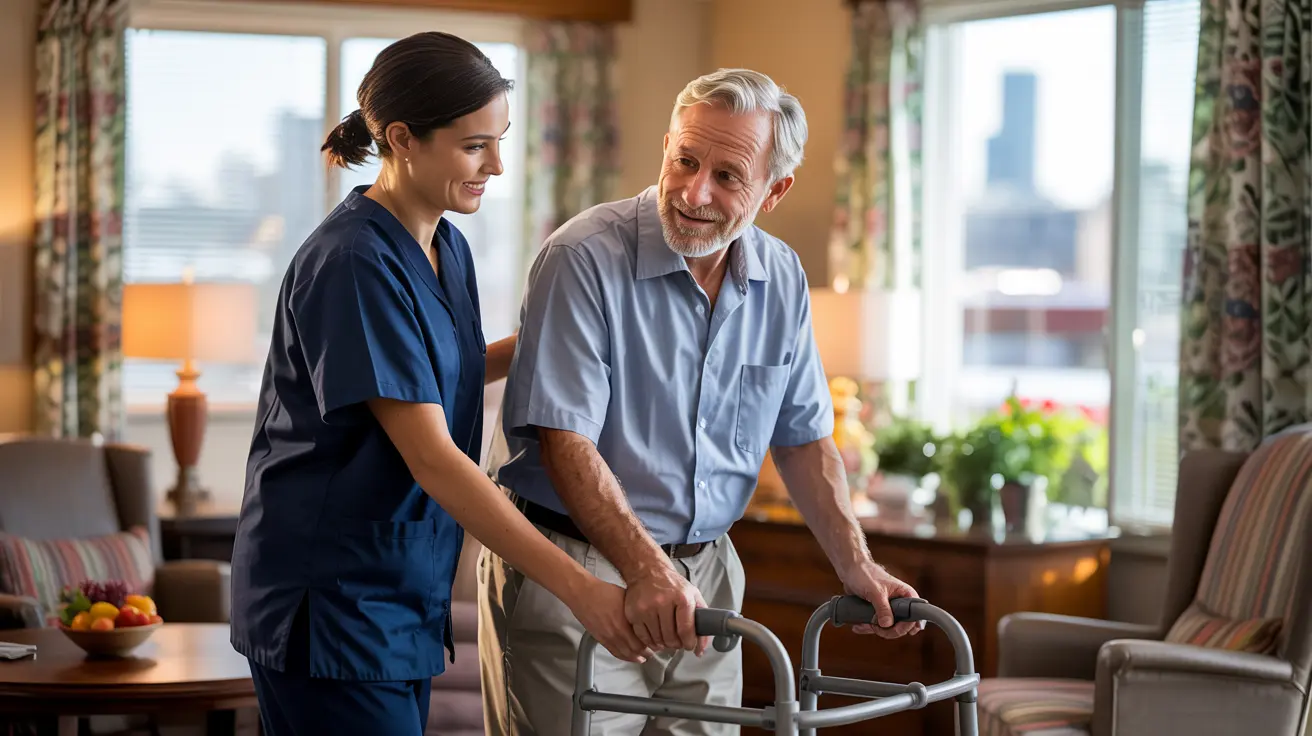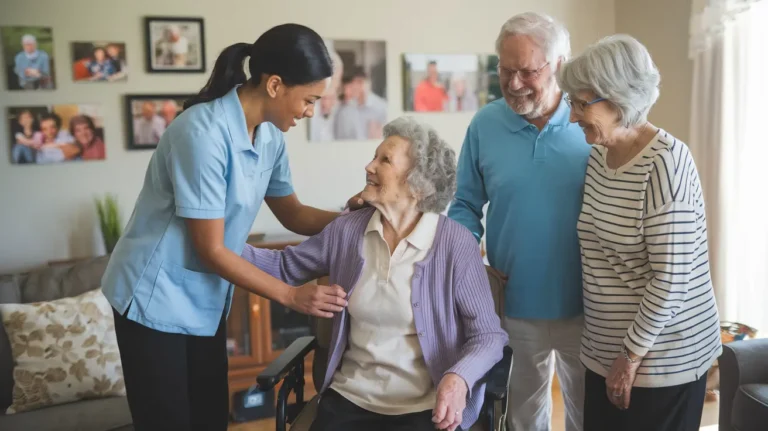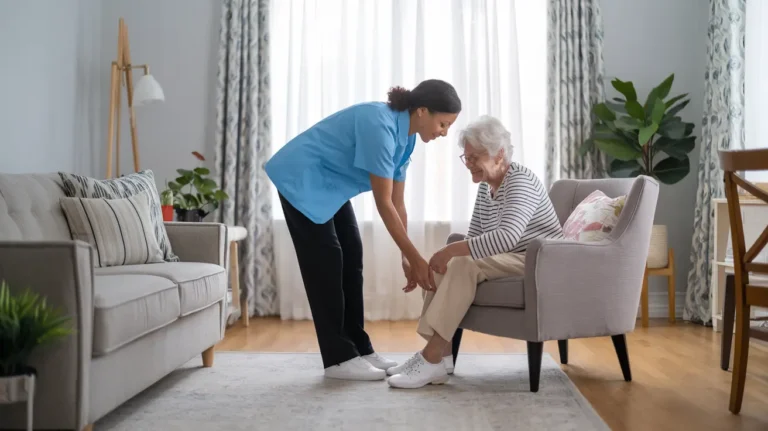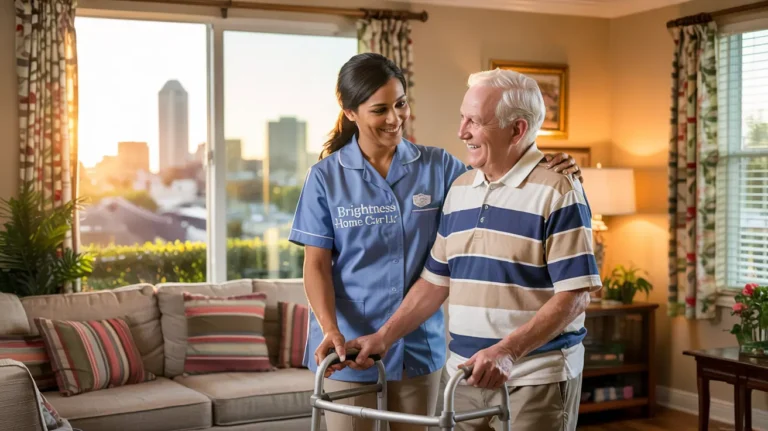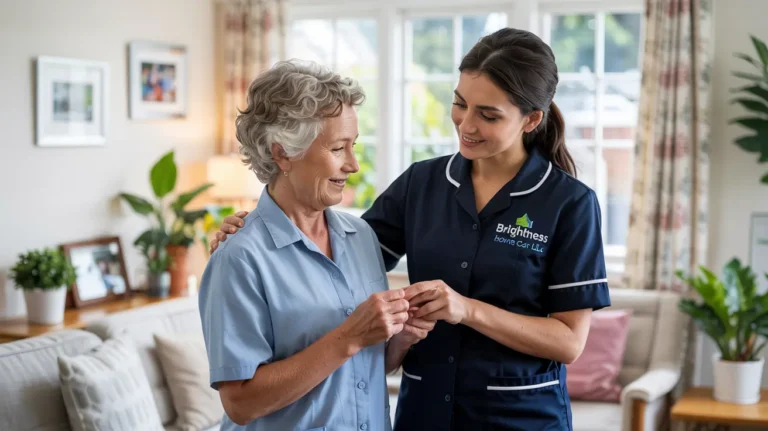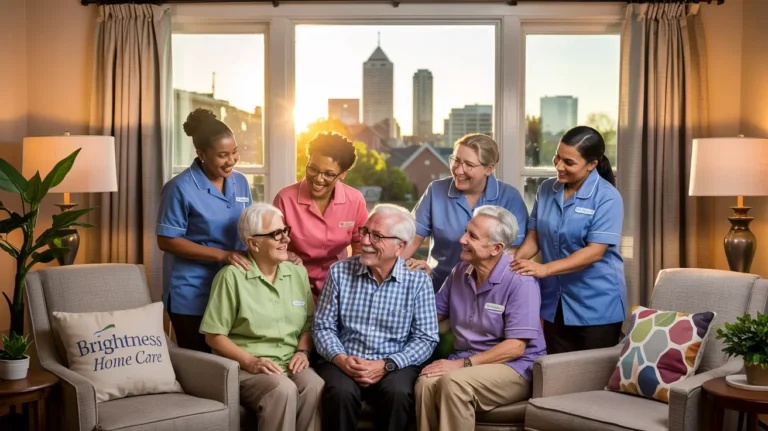Personal Care vs Home Health: Understanding Your Options in Indianapolis
Did you know that over 70% of adults prefer receiving care in their homes rather than in facilities? I totally get it! After spending years working with families navigating elder care options, I’ve seen firsthand how confusing the terminology can be. Personal care? Home health? What’s the difference, and which one does your loved one actually need?
I remember when my own aunt needed care after her hip surgery, and our family had no idea where to start. We made some costly mistakes that I hope I can help you avoid! Whether you’re looking for support for an aging parent, a disabled family member, or yourself, understanding these differences is crucial to getting the right care in Indianapolis.
Both personal care and home health services are available throughout Indianapolis, with providers like Brightness Home Care LLC offering specialized options tailored to individual needs. Let’s break down what each service actually means, who they’re for, and how to decide which is right for your situation.
What is Personal Care?
Personal care is something I’ve been explaining to families for years, and there’s usually a lightbulb moment when they realize this might be exactly what they need! Personal care services focus on helping individuals with non-medical, everyday activities that have become challenging.
Think of personal care as getting help with the things most of us take for granted – taking a shower without falling, getting dressed when buttons become too fiddly, or preparing nutritious meals when standing at the stove gets too tiring. I’ve had clients who were practically living on cereal before getting help with meal prep!
Personal care assistants typically help with:
- Bathing and personal hygiene
- Dressing and grooming
- Toileting assistance
- Meal preparation and feeding
- Light housekeeping
- Medication reminders (not administration)
- Companionship and social engagement
These services are usually provided by professional caregivers who may have certifications like Certified Nursing Assistant (CNA) or Home Health Aide (HHA), but they aren’t required to have medical training. The focus is on supportive care rather than medical interventions.
Personal care benefits folks who are generally stable health-wise but struggle with daily tasks. My client Dorothy was perfectly healthy at 89, but arthritis made dressing nearly impossible. Personal care was perfect for her situation! These services are typically paid for privately, through long-term care insurance, or sometimes through Medicaid waiver programs for qualifying individuals. For detailed information on coverage requirements, visit the official Medicare home health services page.
Visits can be as brief as a few hours or as comprehensive as 24/7 care, depending on needs and budget. Brightness Home Care LLC in Indianapolis offers flexible scheduling to accommodate various personal care needs throughout the Indianapolis area.
What is Home Health Care?
Home health care is a whole different animal, and understanding this distinction saved my family thousands when my dad needed care! Home health is medically-focused care provided in the home by licensed healthcare professionals. It’s essentially bringing medical services to you instead of you going to them.
I once worked with a family who was paying out-of-pocket for services that Medicare would have covered completely! Don’t make that mistake. Home health includes services like:
- Skilled nursing care
- Physical therapy
- Occupational therapy
- Speech therapy
- Medical social services
- Care from home health aides under medical supervision
The providers aren’t just caregivers – they’re licensed healthcare professionals like RNs, LPNs, and certified therapists who follow a doctor’s orders. Home health requires a physician’s prescription and is intended for people with medical needs that can be addressed at home.
Medicare and private insurance typically cover home health services, but there are specific requirements. Generally, you need to be “homebound” (leaving home is taxing and happens infrequently) and require skilled care. The care is also typically short-term and focused on recovery or stabilization.
Home health visits are usually shorter than personal care visits – maybe 30-60 minutes – and focused on specific medical goals. The intention is typically to help someone recover, rather than provide ongoing support indefinitely.
Key Differences Between Personal Care and Home Health
The biggest difference I see families get confused about is the medical vs. non-medical distinction. Home health addresses medical needs while personal care addresses daily living needs. I can’t tell you how many times I’ve had families call asking for “nursing” when what they really needed was help with bathing!
Qualification requirements vary significantly too. You need a doctor’s order for home health, and you must meet Medicare’s definition of “homebound” in most cases. For personal care, no medical qualification is necessary – it’s based purely on need and ability to pay.
Payment is another huge difference. Medicare and insurance might cover 100% of home health if you qualify, but they generally don’t cover personal care (except through certain Medicaid programs for low-income individuals). That mistake cost my neighbor thousands before someone finally explained the difference to him!
Provider qualifications differ too. Home health providers must be licensed healthcare professionals operating under a physician’s orders. Personal care providers need training in caregiving but don’t need medical credentials in most cases.
Duration expectations are different as well. Home health is typically short-term – weeks to months – with the goal of rehabilitation or teaching self-management. Personal care can continue indefinitely as long as it’s needed and funded. I’ve worked with some clients who’ve had the same personal caregiver for years!
The goals diverge significantly too. Home health aims for medical recovery or stabilization, while personal care focuses on maintaining comfort, safety, and quality of life over the long term.
When Personal Care is the Right Choice
I’ve found that personal care shines in several common scenarios. If your loved one is generally medically stable but struggling with everyday tasks, personal care is often perfect. My client Barbara was healthy as a horse but couldn’t safely step into her tub anymore – personal care was exactly what she needed.
Watch for these signs that personal care might be appropriate:
- Difficulty with hygiene or grooming
- Weight loss or poor nutrition due to inability to shop or cook
- Medication confusion (but not serious medical issues)
- Loneliness or isolation
- Minor mobility issues affecting daily tasks
- Need for transportation assistance
- Household tasks becoming overwhelming
The benefits of personal care in Indianapolis are significant. Clients maintain independence in their own homes while getting just enough support to remain safe. Plus, having consistent caregivers provides valuable social interaction – something I’ve seen transform the outlook of many isolated seniors.
Brightness Home Care LLC in Indianapolis takes a particularly personalized approach to personal care. During my visits to their clients, I’ve noticed how they match caregivers based on personality and interests, not just availability. They create detailed care plans addressing individual preferences – down to exactly how someone likes their coffee prepared!
One success story that stuck with me was a gentleman who had become withdrawn and depressed after losing his wife. Within weeks of starting personal care that included companionship, his daughter told me he was laughing again for the first time in months. These seemingly small services can have profound effects on quality of life.
When Home Health is the Right Choice
Home health becomes the appropriate choice when specific medical needs arise. After my mother’s stroke, she needed specialized therapy that only licensed professionals could provide – home health was essential in her recovery.
Medical conditions that typically warrant home health include:
- Recovery from surgery, stroke, or acute illness
- Wound care needs
- New medication regimens requiring monitoring
- Need for physical, occupational, or speech therapy
- Recent hospital discharge with ongoing medical needs
- Chronic disease that’s recently destabilized
Post-hospitalization is one of the most common scenarios for home health. Those first few weeks after discharge are when complications and readmissions often occur. Home health provides that crucial monitoring and support during transition periods.
The benefits of receiving skilled nursing and therapy at home rather than in a facility are enormous! Patients recover better in familiar environments, avoid exposure to facility-based germs, and can practice skills in the actual setting where they’ll use them. When my colleague’s father was recovering from hip surgery, his home health physical therapist taught him to navigate his specific bathroom setup – something impossible to replicate in a clinic setting.
Common home health interventions include medication management, wound dressing changes, disease education, therapeutic exercises, and vital signs monitoring. The goal is always to help the patient either recover completely or learn to manage their condition effectively.
An important consideration is the transition from home health to personal care. Once medical needs stabilize but support is still needed for daily activities, many families transition to personal care services. Brightness Home Care LLC in Indianapolis specializes in creating seamless transitions between these different levels of care.
How to Access Quality Care in Indianapolis
Starting the care journey can feel overwhelming – I totally remember that feeling when helping my own parents! The first step is typically an honest assessment of needs. Is there a medical component requiring skilled professionals? Or are the challenges primarily with daily activities?
When evaluating potential providers in Indianapolis, ask these questions:
- How long have you been providing care in Indianapolis?
- Are your caregivers employees or contractors?
- What training do your caregivers receive?
- How do you handle caregiver call-offs or emergencies?
- Can we request a specific caregiver if the relationship is good?
- What are your minimum visit requirements?
Indianapolis offers several resources for professional care assessments. The CICOA Aging & In-Home Solutions provides free assessments for older adults. Additionally, most reputable care providers, including Brightness Home Care LLC, offer complimentary needs assessments.
Contacting Brightness Home Care LLC is straightforward. Located at 4911 West 38th Street in Indianapolis, they provide services throughout Marion County and surrounding areas. Their initial consultation process involves a thorough assessment of needs, discussion of care options, and creation of a personalized care plan.
During my visits to clients in different Indianapolis neighborhoods, I’ve been impressed by Brightness Home Care LLC’s extensive service area coverage, from downtown to the outskirts of Marion County. Their familiarity with local resources in each neighborhood helps connect clients with community supports beyond just in-home care.
Conclusion
Navigating the difference between personal care and home health services doesn’t have to be overwhelming! Remember that home health addresses medical needs under a doctor’s orders, while personal care supports day-to-day activities and quality of life.
The right choice depends entirely on your loved one’s specific situation. Some people need one or the other, while some need both at different times. There’s no one-size-fits-all answer, but understanding these differences helps you advocate effectively for appropriate care.
Brightness Home Care LLC brings years of experience helping Indianapolis families navigate these exact decisions. Their team can help assess needs, coordinate with healthcare providers, and create flexible care plans that evolve as circumstances change.
I’d love to hear about your experiences with home care in Indianapolis! What challenges have you faced in finding the right care? Have you discovered resources that made the process easier? Share your story and help other families on this journey!

